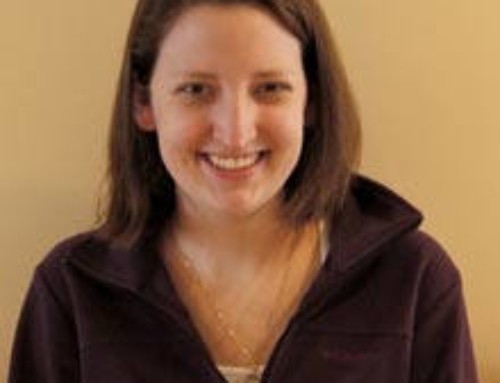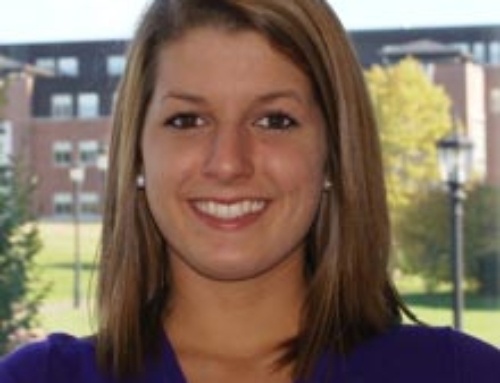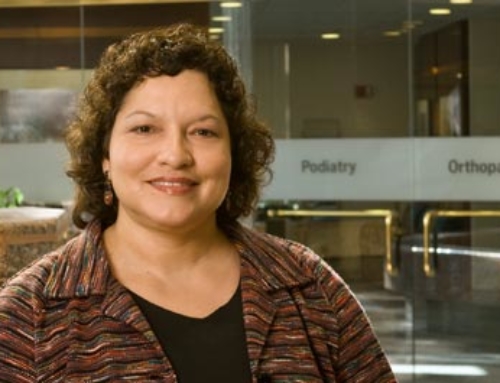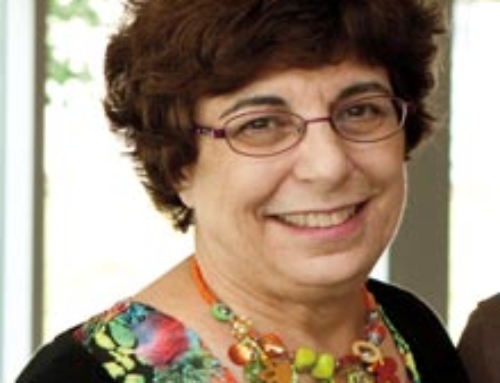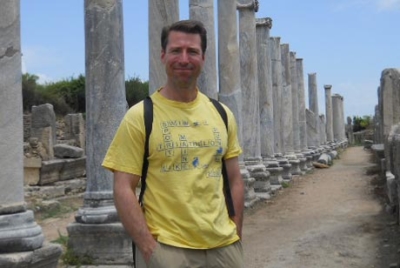 While there may be no place like home, foreign lands entice many Saint Joseph’s faculty, students, and alumni to pack their bags looking for adventures abroad. Whether traveling for research or for fun, foreign countries offer unparalleled opportunities for learning – often in unexpected ways.
While there may be no place like home, foreign lands entice many Saint Joseph’s faculty, students, and alumni to pack their bags looking for adventures abroad. Whether traveling for research or for fun, foreign countries offer unparalleled opportunities for learning – often in unexpected ways.
When planning a summer vacation, most people wish for scenic views and delectable food. For business professor Mary Engel and husband Paul, the summer of 2011 included two weeks of living in a tent with no electricity, no phone, and water supplied by a nearby glacier.
“We wanted to get out of our comfort zone,” Engel says. The couple served as volunteers for the nonprofit Biosphere Expeditions which took them from Maine to the Republic of Altai in central Asia, bordering China, Kazakhstan and Mongolia.
“The area was so magnificent that even on a cloudy day it was like Shangri-La,” she adds. In addition to learning about snow leopards from the scientists who came to study them, the Engels, who had never been primitive camping, learned how to set up a tent, take it down again, and how to drive a Land Rover through rivers and over rough terrain.
Theology professor Steve Bridge also left his comfort zone when he traveled to Turkey last summer as part of a three-year research project on the Apostle Paul.
“I didn’t know any Turkish before I left, I was traveling solo, and I didn’t know a soul in the country,” Bridge explains, adding that everything turned out well. “I memorized a dozen key phrases on the plane, got a rental car with a good GPS and just took off.”
In 38 days, Bridge logged more than 3,000 miles investigating 25 sites associated with the Apostle Paul. From bustling metropolises to winding coastal roads and sleepy villages, Bridge marveled at the warmth and hospitable nature of the Turkish people. He was also taken by the varied landscapes he encountered from surreal volcanic tufts to the gorgeous Mediterranean coast.
For senior Brian Farley, sociology and fine arts student from Cape Neddick, Maine, his semester in Italy taught him not only about the arts but about himself as well.
“I walked the same streets as Michelangelo and Galileo and saw where they studied,” he says. “It was much more hands-on than reading a book.” But Farley adds that the culture shock of being completely removed from his typical day-to-day life was eye-opening.
“You learn how to restructure your life in a different country, and then when you come back, you experience culture shock again,” he says. “You want to talk about your experiences, but not every one can relate to where you’ve been.”
“I had never done anything like this before,” says Emily Marshall, a senior communications major from Gorham, Maine, of her weeklong experience in Guatemala last year with a group of Saint Joseph’s volunteers. Marshall was taken aback by the poverty of this third-world country.
“The kids taught me the most,” she says. “They were happy to see us and so grateful every day even though they had no shoes, no education, and no entertainment. Their passion for life and consideration for each other was so great.”
Senior business major Kayla Stanko of Peabody, Mass., had never been outside the United States but chose to travel to Australia for four months.
Although language was no barrier, Stanko learned to adapt to different cultures – she lived with people from Germany, Sweden, Italy, and Australia – and fell in love with the international experience.
“I plan to travel to Europe once I graduate,” she says.
For Anthony Girlando, traveling to Italy every summer is simply going home again. Born in Rome, the business professor researches cross-cultural relations.
“In most countries, you have to know people to learn anything,” Girlando explains. “I try to teach that to my students. You can’t just show up …. It’s all about relationship building….”
Before traveling to Italy, Girlando suggests trying to explore how Italians view Americans.
“That can be an eye opener,” he says, laughing. Secondly, he advises examining your own stereotypes of Italians, and lastly, “Go with a tremendously open mind. Sometimes it’s going to be weird and different, but that’s okay.”
Andrea Vianello, a Saint Joseph’s history professor, journeyed to Greece in 2011 to prepare for teaching a course in ancient history. Along with spouse and fellow professor Michelle Laughran, he spent a month exploring ancient sites including one unexpected treasure – the ancient Apollo Epicurius temple – high up in the mountains.
“The road to get there was abysmal with chunks of the mountainside falling away,” relates Laughran. And while the temple was “absolutely astounding,” she describes the strange juxtaposition of the ancient temple with a huge, modern tent built over it as protection from the elements.
“We came around the bend on this terrible road and suddenly you see this big, white circus tent,” she says. “It was very unexpected.”
History professor Michael Connolly couldn’t settle on one destination so he chose the Semester at Sea program in spring of 2011, teaching courses on board the ship that housed 600 students. At all 15 ports in South America, Africa and Asia, participants had several days to explore the countryside and culture.
Connolly learned that even in countries that are supposed to be models of innovation, there is an incredible amount of poverty.
“There is a huge discrepancy between the rich and the poor, and I was aware of that,” he says. “But seeing it up close was profound.” He also realized that, no matter where he went, people are basically the same.
“They’re all curious, and they want the same things for their family as we do,” he says.
By Betty Lynne Leary
